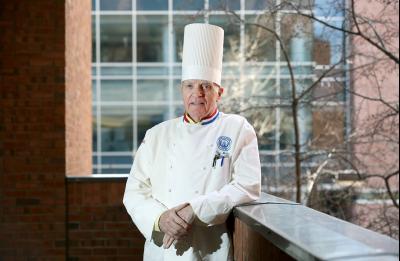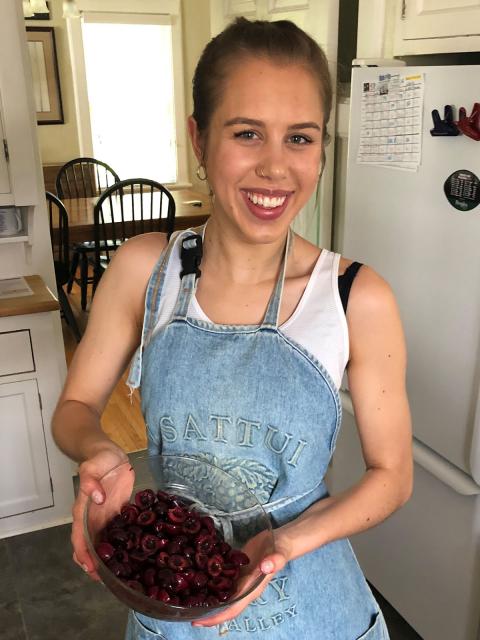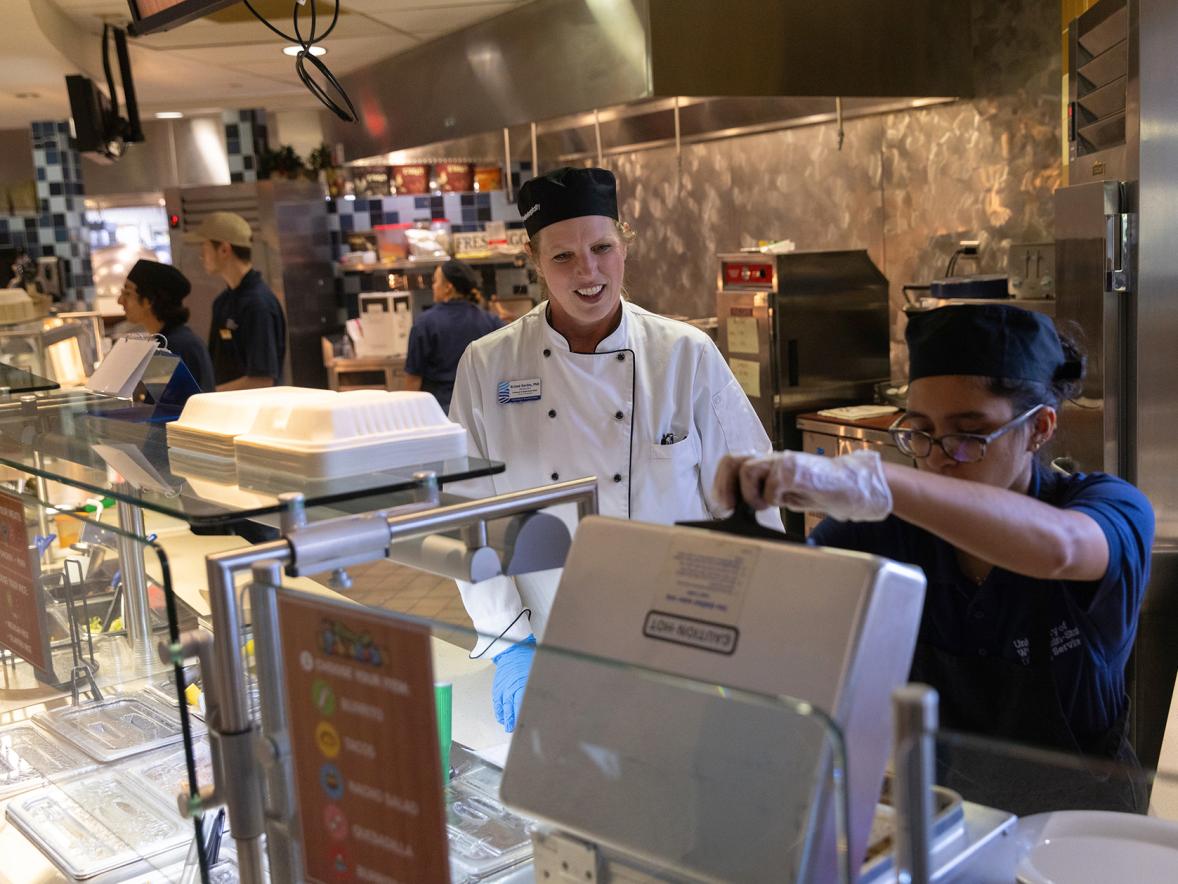Donned in his chef’s toque and double-breasted jacket, Phil McGuirk would typically be preparing his students for their final exams in late spring. Shifting from kitchen station to station, correcting a knife hold here, a sauté method there, some of his favorite teaching moments have been in the hotel, restaurant and tourism management labs at University of Wisconsin-Stout.
With more than 40 years of teaching experience, McGuirk has taught all of the food classes in the university’s Cedar Café Corner III lab, including Catering, Haute Cuisine, Quality Food Production, Restaurant Operations and Principles of Foodservice Operations.
But when UW-Stout moved to alternative learning methods due to COVID-19, the 80-year-old faculty member needed to find a way to continue to give his students hands-on lessons in the culinary arts without access to the labs.
From the Cedar Café to their own kitchens
McGuirk adapted his Principles of Foodservice Operations course into an online format, ensuring the delivery of his expertise to his students. But not having taught an online course before, he didn’t know what to expect

“I was so in love with the lab setting and being able to visit the students on their stations in the kitchen or dining room, giving them individual attention,” he said. “But the transition to online went better as we went through the semester. I was up for the challenge.”
At the start of the semester, the class met for four hours each week at the Cedar Café lab in Heritage Hall, learning dining room service, restaurant operations, basic cooking principles and management concepts.
These lessons prepared HRTM students, from UW-Stout’s School of Hospitality Leadership, for their last six weeks of class when they created six entrées, one per week. Normally completed in Cedar Café, students instead cooked at home in their kitchens and submitted the written aspects of their assignments to McGuirk via email.
Delving into their culinary skills to create a sandwich, a salad, chicken, fish, beef and pasta dishes, students documented their cooking process with photos or videos.
“We chose any recipe or preparation of the food item in the category, and we standardized the recipe we chose. After the cooking process, we evaluated how our meal turned out and submitted it to Phil,” explained Rayne Holmson, a first-year student in the HRTM program.

For three of her dishes, Holmson, of Wausau, created a warm venison salad with fresh raspberry vinaigrette, miso ginger cod and a BLT sandwich, complete with homemade bread and lemon garlic mayonnaise.
“The transition from learning in the campus labs to learning from my home kitchen was interesting to adapt to,” Holmson said. “I have learned that I work best when I can interact with my teachers and peers. Not having Phil to teach in person has been a struggle. The cooking part has been fun, however, because I am able to share the end product with my family.”
Holmson chose HRTM because she wants to learn how to create impactful experiences for others. This semester, she brought that experience to her family in their dining room, creating lasting memories with homemade meals.
“It is incredibly important to me to be able to make people feel valued, taken care of and, above all else, happy. Being an HRTM major is the perfect way for me to be able to achieve that,” she said.
Impacting others through hospitality
With four decades at UW-Stout under his belt, McGuirk has inspired countless hospitality graduates. Stout University Foundation Development Program Manager Jennifer Rudiger describes McGuirk as a “military-style instructor who accepts nothing less than perfection from his students in their cooking labs.”
“But Phil loves his students, and his alumni love him,” Rudiger added. “He is pretty passionate about his students and proud of how he and the students have quickly transitioned to online teaching and doing their lab assignments.”
McGuirk feels his students responded well to the transition to an online course. “I saw great creativity within my students as they learned how to cook or prepare meals at home. The best part about teaching virtually was evaluating how much each student learned.”
He’d like to tell his graduating students that the sky is the limit, with the sage advice of always having a plan in mind. “You can be what you want to be. All you have to do is figure out how to get there. Just always try to do your best,” he said.






